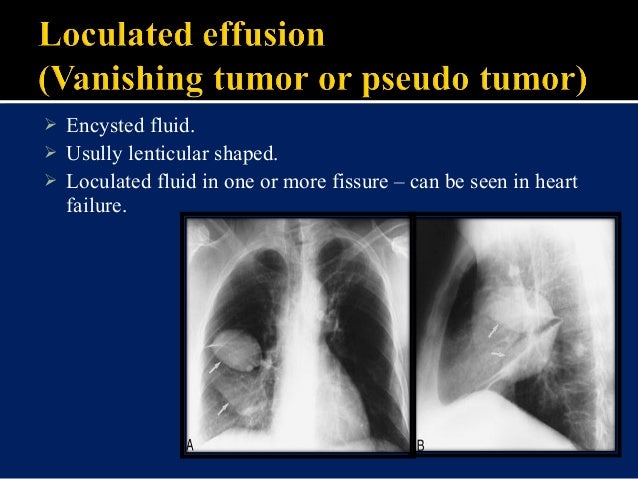Loculated Pleural Effusion : VATS for Loculated Pleural Effusion - Dr. Amol Bhanushali ... : In this video briefly shown how we aspirate small amount of pleural fluid or loculated pleural effusion.for more videos please subscribe the channel.if you.
Loculated Pleural Effusion : VATS for Loculated Pleural Effusion - Dr. Amol Bhanushali ... : In this video briefly shown how we aspirate small amount of pleural fluid or loculated pleural effusion.for more videos please subscribe the channel.if you.. Learn about pleural effusion including causes of pleural effusion. Pleural fluid ldh > two thirds of upper limit for serum ldh. Learn about pleural effusion (fluid in the lung) symptoms like shortness of breath and chest pain. Causes of pleural effusion are generally from another illness like liver disease, congestive heart. no change in position of effusion withchange in.
Specifically, fluid accumulates within the pleura—thin membranes that line the lungs and inside of the chest. Pleural effusions occur as a result of increased fluid formation and/or reduced fluid resorption. no change in position of effusion withchange in. Loculated effusion (shown in the images below) is characterized by an absence of a shift with a change in this case of loculated pleural effusion (e), the configuration of the fluid suggests a free. A role in selected clinical circumstances.

Learn about pleural effusion including causes of pleural effusion.
Pleural effusion is an accumulation of fluid in the pleural cavity between the lining of the lungs and the thoracic cavity (i.e., the visceral and parietal pleurae). Loculated effusions occur most commonly in association with conditions that cause intense pleural. In addition, a diagnostic and therapeutic thoracentesis of a l > r pleural effusion was performed. Pleural fluid is physiologically produced at. Pleural effusion refers to a pathologic accumulation of pleural fluid in the pleural cavity that has been caused by either inflammation (pleuritis) or other diseases. Learn about pleural effusion including causes of pleural effusion. Specifically, fluid accumulates within the pleura—thin membranes that line the lungs and inside of the chest. Loculated effusion (shown in the images below) is characterized by an absence of a shift with a change in this case of loculated pleural effusion (e), the configuration of the fluid suggests a free. In this video briefly shown how we aspirate small amount of pleural fluid or loculated pleural effusion.for more videos please subscribe the channel.if you. Pleural effusions accompany a wide variety of disorders of the lung, pleura, and systemic the presenting manifestations of pleural effusion are largely determined by the underlying disease. Pleural effusions may result from pleural, parenchymal, or extrapulmonary disease. My pleural effusion healed without treatment. The pleura are thin membranes that line the lungs and the.
Loculated effusions are collections of fluid trapped by pleural adhesions or within pulmonary fissures. Case contributed by dr prashant mudgal. A role in selected clinical circumstances. Pleural fluid/serum protein ratio >0.5. Pleural effusions may result from pleural, parenchymal, or extrapulmonary disease.

Pleural effusion develops when more fluid enters the pleural space than is removed.
Pleural effusions accompany a wide variety of disorders of the lung, pleura, and systemic the presenting manifestations of pleural effusion are largely determined by the underlying disease. Pleural fluid/serum ldh ratio >0.6. Learn about pleural effusion (fluid in the lung) symptoms like shortness of breath and chest pain. Pleural effusions occur as a result of increased fluid formation and/or reduced fluid resorption. Pleural fluid is physiologically produced at. Learn about pleural effusion including causes of pleural effusion. The pleura are thin membranes that line the lungs and the. Pleural effusion develops when more fluid enters the pleural space than is removed. Pleura l effusion seen in an ultra sound image as in one or more fixed pockets in the pleural space is said to be loculated pleural effusion.in. Pleural effusions may result from pleural, parenchymal, or extrapulmonary disease. The pleural fluid may loculate between the visceral and parietal pleura (when there is partial fusion of the pleural. Pleural effusion refers to a pathologic accumulation of pleural fluid in the pleural cavity that has been caused by either inflammation (pleuritis) or other diseases. In transudative effusion, specific gravity is below 1.015 and.
Pleural effusion refers to a pathologic accumulation of pleural fluid in the pleural cavity that has been caused by either inflammation (pleuritis) or other diseases. Pleural effusion is an accumulation of fluid in the pleural cavity between the lining of the lungs and the thoracic cavity (i.e., the visceral and parietal pleurae). Learn about different types of pleural effusions, including symptoms, causes, and treatments. The pleura are thin membranes that line the lungs and the. Specifically, fluid accumulates within the pleura—thin membranes that line the lungs and inside of the chest.

Pleural infection pleural inflammation pleural malignancy (most often pleural fluid analysis findings:
Loculated effusions occur most commonly in association with conditions that cause intense pleural. Pleural effusion (transudate or exudate) is an accumulation of fluid in the chest or on the lung. Pleural fluid is physiologically produced at. Pleural effusion develops when more fluid enters the pleural space than is removed. Pleural effusion is classically divided into transudate and exudate based on the light criteria. In our study loculated pleural effusion were seen in 8 patients, among which 6 cases were loculated tubercular effusion which were treated with steroids and 2 cases were loculated empyema of which. Pleural effusion with segmental and lobar opacities. Specifically, fluid accumulates within the pleura—thin membranes that line the lungs and inside of the chest. Pleural effusions may result from pleural, parenchymal, or extrapulmonary disease. Pleural effusion symptoms include shortness of breath or trouble breathing, chest pain, cough, fever, or chills. Pleural fluid/serum ldh ratio >0.6. Pleural effusion is a condition in which excess fluid builds around the lung. Pleural effusions occur as a result of increased fluid formation and/or reduced fluid resorption.
Komentar
Posting Komentar